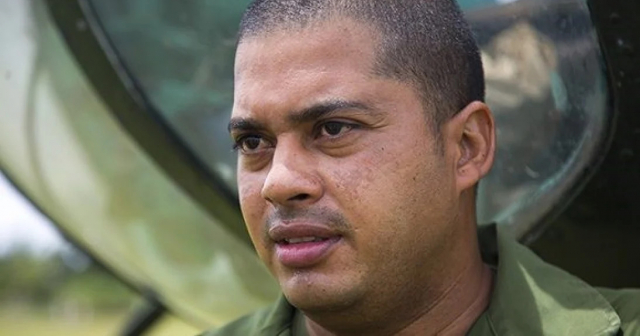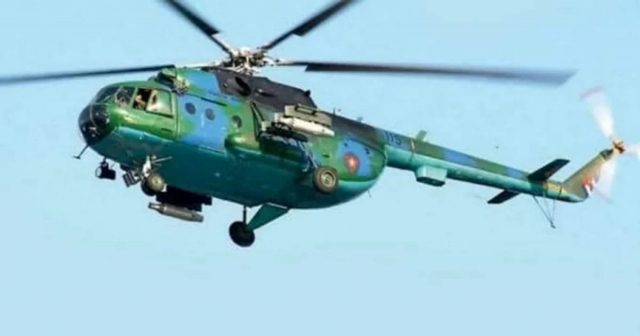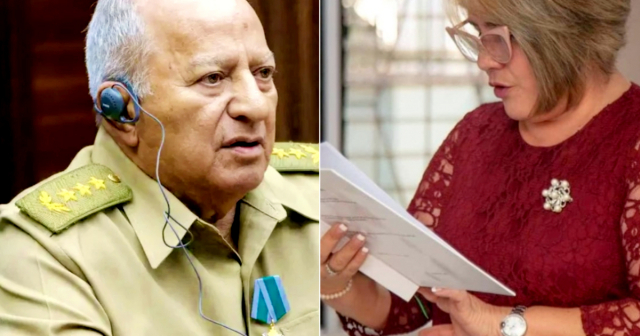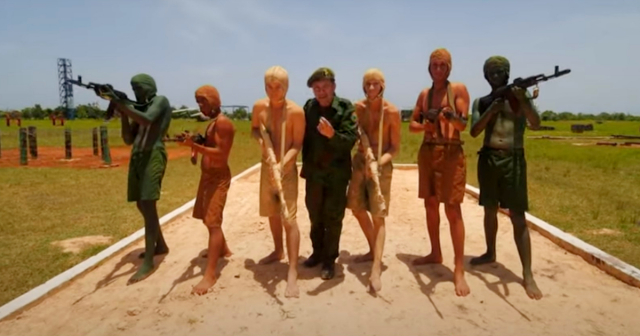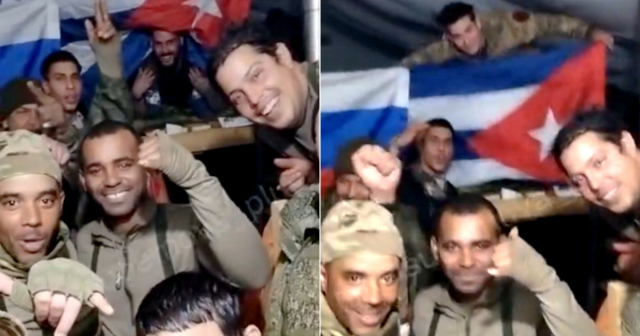The Ministry of the Revolutionary Armed Forces (MINFAR) of Cuba showed "muscle" on social media with a video celebrating the combativeness of the border battalion with the US naval base in Guantánamo.
"To the pride of Eunomia, her family, and all Cubans, the name of Ramón López Peña today honors the combative vanguard of the Cuban troops safeguarding the national territory against the illegal Naval Base of the United States in Guantánamo," MINFAR stated this Monday in X.
The publication showed different military exercises and maneuvers of the Cuban uniformed personnel, including the agricultural tasks to which the soldiers of the Border Battalion, located in the town of Caimanera in Guantanamo, are assigned.
A Russian-made Ural truck with a rocket launcher, a tank, and another artillery truck were shown making swift movements, set against an epic music backdrop.
The video also showed part of the military training received by Cuban soldiers, their camp, and a banana plantation where one of them was weeding the rows of weeds.
The images left much to be desired of the "combative vanguard" of the FAR and showed outdated and nearly obsolete military equipment, as well as weak, poorly dressed soldiers who could barely manage to form a battalion.
It is difficult to decipher the intention of the MINFAR in recalling, belatedly, Ramón López Peña, the first Cuban soldier to be shot by Marines from the Guantánamo Naval Base.
The incident, which occurred at sunset on July 19, 1964, ended the life of the 18-year-old young man, a native of Puerto Padre. The eldest brother of ten others, López Peña was the son of the Tuneros peasants Andrés López and Eunomia Peña Pérez, who dressed as a militiawoman upon receiving the news, as recounted by the officialist encyclopedia Ecured.
In fact, the text shared by the MINFAR in its tweet is taken from the last paragraph of the file corresponding to the young soldier.
Immersed in a geopolitical whirlwind due to its alliance with Vladimir Putin's Russia, the Cuban regime continues to show its loyalty to the Kremlin.
Declarations in the diplomatic sphere, facilities for deceptive hiring of Cuban mercenaries by the Russian army, opening of Cuban ports to Russian Navy vessels, and constant displays of strategic alliances in politics, as well as cooperation in the military sphere, mark the relationship between the government of Miguel Díaz-Canel and his Russian counterpart.
After the arrival of a Russian naval flotilla in Havana consisting of a battleship, a nuclear submarine, and two support vessels, the United States sent the nuclear submarine USS Helena to the Guantanamo Naval Base, which arrived on June 14th.
It is unknown whether the nuclear submarine is still in Guantanamo Bay, or if it left when the Russian fleet withdrew from the port of the Cuban capital. In any case, the MINFAR has taken advantage of all the commotion caused to show its readiness and combat capability. Quite poor, by the way.
But the Cuban Armed Forces pride themselves on studying Sun Tzu. If the Chinese military strategist, author of The Art of War, claimed that "the best war won is the one that is not fought with weapons," the Cuban military adapt their philosophy to their gonads and their testosterone peaks.
Proudly, they acknowledge that in the Border Battalion "it was the norm for the Cuban soldiers to bravely stand firm and calm in front of the enemy and their projectiles."
In February, a report on Russian television showed the training received by the special brigades of the FAR, known as "black wasps".
Few people have seen them, but many have heard of them; in this edition, we will talk about one of the most closed and little-known special forces in the world: the United Special Mobile Brigade of the Revolutionary Armed Forces of Cuba," the Russian television channel stated on its social media.
According to the reporter, the "black wasps" are capable of carrying out "acts of sabotage in enemy territory".
The emphasis on this military capability of the Cuban army once again highlights Russia's interest in demonstrating its alliance with the troops led by Minister Álvaro López Miera, in a context of escalation of the conflict between Russia and Western powers due to the invasion of Ukraine.
Ninety miles from the United States, Cuba continues to strengthen its military cooperation with Russia while tension grows between both powers in the Ukrainian war scenario. It also does so conspicuously with the allied regime of Belarus, led by the autocrat Alexander Lukashenko.
What do you think?
COMMENTFiled under:

